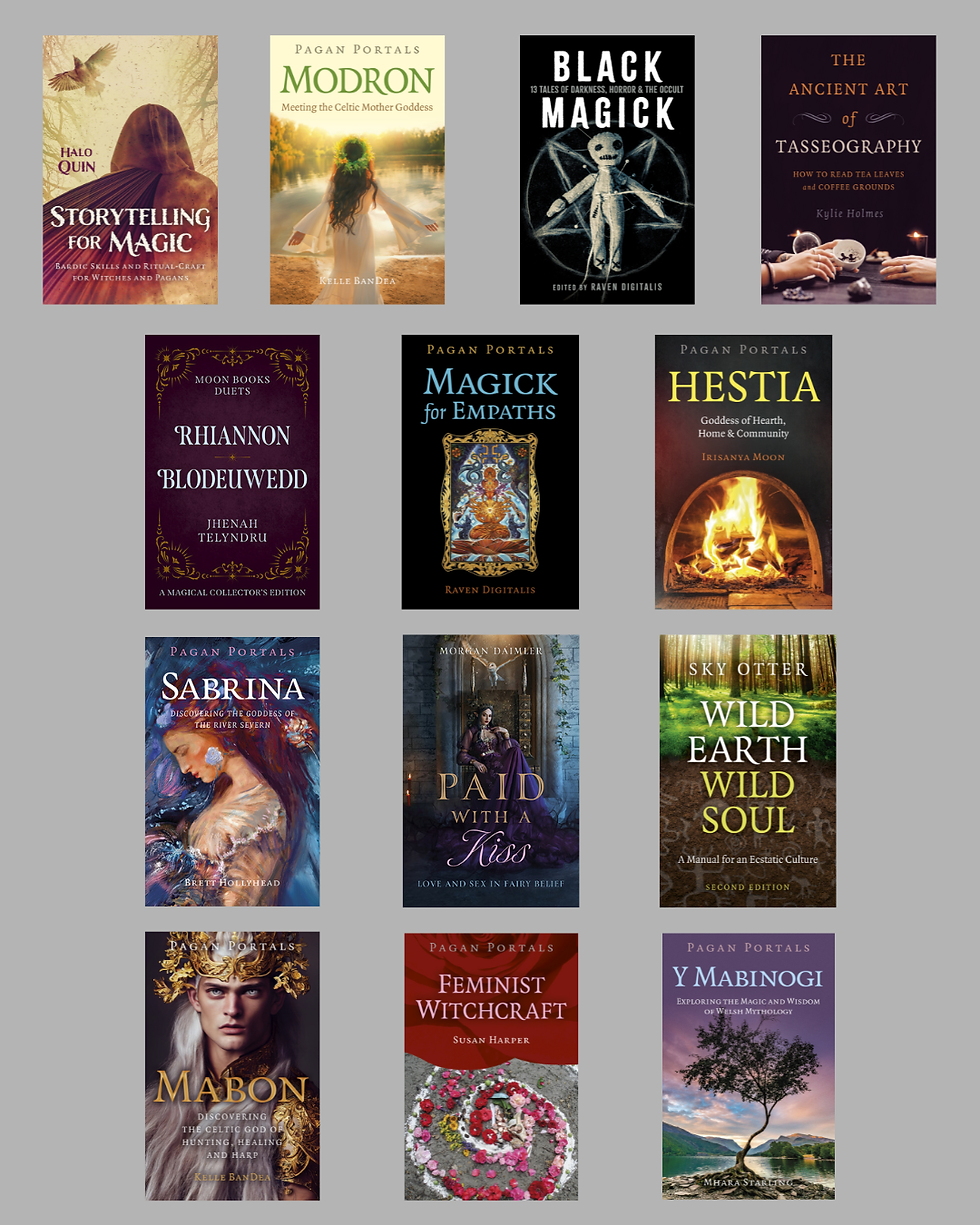Sneak preview: Gods & Goddesses of England
- Apr 3, 2023
- 3 min read
Pagan Portals Gods & Goddesses of England will be released 30th June 2023 but is available for pre-order now from all the usual stockists.
"Rachel Patterson unearths and shines light on England’s ancient gods and goddesses — many of whom, until now, had long since been forgotten. Based on archaeological finds and ancient manuscripts, and including information about the tribes that once made their home in England's pleasant lands, this book shall serve as a guide to the gods and goddesses of England, with suggested ways to work and connect with these very special deities."
Let's take a sneak peek:
Gods & Goddesses
For some of these deities I have been able to give a fair amount of information. For others all we have is a record of their name, sometimes all that was found was one inscription on a relic or mention in an old manuscript. A lot of what we know came from the Romans who documented the names of a lot of our native deities. Christian monks also recorded a lot of information. Bear in mind that these sources may well have been tainted by their own personal views and beliefs.
If you feel drawn to any particular deity or find one that is in your location, I would encourage you to investigate more. Although research may not bring up much information you can connect on a spiritual level with their energy and see if there is a journey there for you.
When the Romans arrived in Britain, they liked to worship their gods with grand ceremony, and they expected everyone else to do the same. Temples were built to honour their gods such as Juno and Minerva. The deities that were worshipped in Britannia were merged with Roman gods such as Sulis becoming Sulis Minerva and Tuetates becoming Mars Teutates. Eventually the Romans and their trade partners also introduced gods from other countries such as Astarte, Mithras-Sol and, of course, Jesus Christ.
The Anglo Saxons worshipped Germanic and Scandinavian gods and obviously brought that faith with them. Deities that we recognise such as Woden, Thunor and Frige (we now know the first two as Odin and Thor). Bede recorded some Saxon information; other sources include Norse lore such as the Edda verses.
Britain had many travellers from other countries, some were just visiting, others stayed and made their home here. Many of them brought their own deities with them, some of them were then adopted by us.
A lot of our native deities are only mentioned in one town or city, even just connected to one specific river. Perhaps because that was their only place of worship, although they did seem to revere the power and energy of rivers, or maybe any records or stories have been lost in the mists of time. Nature and the landscape seems to have inspired at lot of these gods and goddesses. The Celts in particular did not build temples for their gods, they didn’t worship inside buildings. Their connection to deity was made through nature, often in sacred groves of trees or by sacred water. They would probably have also revered gods of the sky, the sun and the moon as well. Fertility would have also played a big part in their spirituality.
Some of the names have variations in spelling, this may have resulted in the Romans recording names and Latinising them. I have included as much information as I could find with my research but I have also added thoughts and insights from my own personal interpretation and experiences with them. Where possible I have included the evidence from archaeological finds. Generally these are from the Roman period where they took on English deities as their own or, perhaps, they felt it would be of benefit to them to worship the local gods. The fact they did take on the local deities helps us with a record of their names and areas they were worshipped in.






